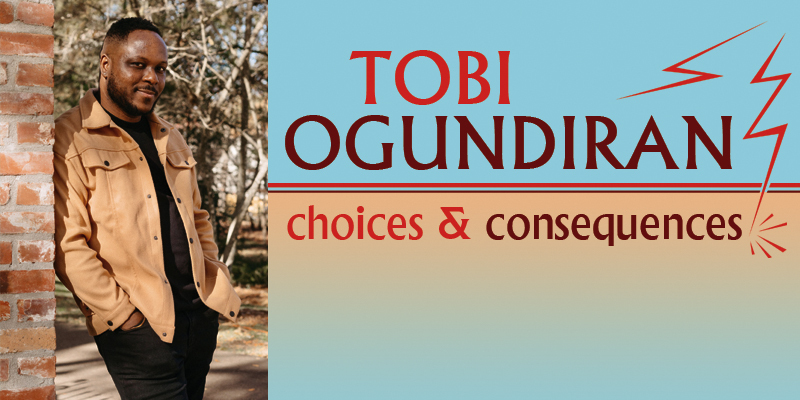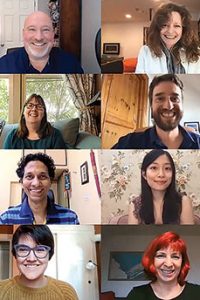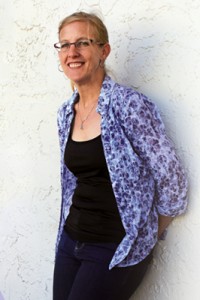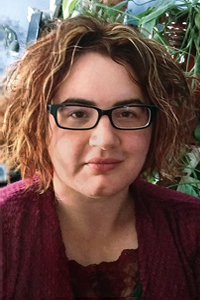Tobi Ogundiran: Choices & Consequences

OLUWATOBI AJIBOLA OGUNDIRAN was born August 1, 1995 in Lagos, Nigeria, where he grew up until attending boarding school in Kwara State in Nigeria. At 19, he moved to Russia for medical school, spending seven years there. In addition to his work as a physician, he is currently studying for his MFA at the University of Mississippi.
Ogundiran began publishing with ‘‘Maria’s Children’’ in The Dark in 2018, and has since published in Fiyah, Lightspeed, Tor.com, Beneath Ceaseless Skies, and other magazines, plus anthologies, including Year’s Bests. ‘‘Isn’t Your Daughter Such a Doll’’ (2020) was Shirley Jackson Award and British Science Fiction Association Award finalist. ‘‘The Tale of Jaja and Canti’’ (2021) and ‘‘The Epic of Qu-Shittu’’ (2022) were Ignyte Awards finalists, and ‘‘The Lady of the Yellow-Painted Library’’ (2022) won for Short Story. ‘‘The Goatkeeper’s Harvest’’ (2020) and ‘‘The Many Lives of an Abiku’’ (2020) were finalists for the Nommo Awards.
Some of his short work was collected in Jackal, Jackal (2023), a British Fantasy Award winner and finalist for World Fantasy, Shirley Jackson, and Locus Awards.
Novella In the Shadow of the Fall (2024) began the Guardian of the Gods duology, which concludes with At the Fount of Creation (2025). He is currently working on a novel.
Excerpt from the interview:
“Growing up, I mostly read books that were the bestsellers from the West, so we had lots of Stephen King, John Grisham, thrillers, and all that. Once I discovered Stephen King, I fell in love with his stories – that is what drew me to literary horror. For a while, Harry Potter was really popular, so my friends and I got into reading it and pretending to be wizards – we broke twigs off of branches to make wands and have these epic magic battles. That series would be my entry into specifically defined fantasy and science fiction.
“My parents tell me I’ve been writing ever since I could hold a pen, but I recall when I specifically realized I wanted to become a published author: reading the Harry Potter books and being swept up by the sheer imagination on display. This was when I discovered the power of words, the ability to hold an audience in thrall through the sheer magic of your words. I wanted that. Consequently, I wrote a thinly veiled Harry Potter pastiche when I was in high school. I wrote longhand back then, so I would write a chapter and have my friends read it, and it got to the point where all of them were really waiting for me to come up with the next chapter, and as you can imagine, that did wonders for my ego. Here I was, holding my audience in thrall! I was certain, at the time, that I wanted to be a writer, and I thought, ‘Yes, I’m ready to take on the world.’ I moved on from Harry Potter fanfic to writing my own original works, sending those rough drafts out to agents the moment I wrote the last word. Of course, no agent wanted to represent me because, in retrospect, those drafts weren’t ready. They needed editing, deconstruction, and sometimes a total overhaul. I possessed imagination, but I lacked craft, and perhaps, most importantly, patience. I wanted to be published and I wanted to be published NOW. Young me did not understand this, and was baffled by the apathy of gatekeepers to my brilliance.
“But I never stopped. I kept writing. At that time, the publishing infrastructure in Nigeria wasn’t really developed, so I knew that in order to make some headway as a writer, I had to publish in the West. But then came the problem of writing African stories with African characters, and how was that going to be perceived in the West? I was in this position of trying to whitewash my stories to make them as acceptable as possible so agents and editors and all the gatekeepers would consider them. Of course, I had no luck with that. I tried various genres. I tried writing thrillers – mainly, writing the sort of books that heavily inspired me. But I was also dabbling in other genres. And my various forays into other genres were always laced with an undercurrent of horror, because Stephen King was a big inspiration. I went to medical school in Russia, and for the first four years of medical school, I didn’t write – the program was grueling, with the sheer amount of information dumped on you being likened to drinking water from a fire hose, and my days were consumed with studying the pathophysiology of diseases and taking exams, rinse and repeat. In those days, I couldn’t have told you what day of the week it was if you asked me. I emerged from this fugue state after years of medical school and realized, ‘Yo, it’s been a long time since you actually wrote fiction, and if you don’t pay attention to this, it’ll fall by the wayside.’ So I started reading again, this time going into deep scholarship of my first love, fantasy. I was reading Patrick Rothfuss and Joe Abercrombie, really enjoying their worlds and their fresh takes on fantasy. But I was also wondering, ‘Where do Black writers exist in the field?’ The authors I grew up on who were writing explicitly in the genre were white folks, and they were writing about white people. I remember clearly Googling ‘Black science fiction & fantasy authors.’ That’s when I discovered N.K. Jemisin, and I read all her work. That really opened my mind to the possibility of writing about characters who looked like me, and showed me that we could exist in this world. I didn’t necessarily have to pander to the white gaze. That realization gave me the confidence to pursue these genres, and discover Nnedi Okorafor, Tade Thompson, Octavia E. Butler, and Wole Talabi. That really gave me latitude to actively write fantasy and speculative fiction as a whole. Their works just blew my mind. This was in 2017 and 2018, and that was also the point where I discovered SF/F magazines, and the whole community around those, and started writing short stories. I’d had no luck with novels, but with short stories I was pretty lucky, and sold my first two right off the bat to Sean Wallace at The Dark. That first acceptance was like validation for me, since I’d been trying to get published for years and years, and things have just kept going ever since then.
“The industry has changed, but not a lot, and not at a pace that we would all wish. Today there are more published Black writers of sci-fi/fantasy than there were, say, five or ten years ago. Now it’s way easier to find comp titles for your book written by other people of color. In that regard, things are slightly easier. I guess it doesn’t occupy my mind that I might be doing for upcoming writers what N.K. Jemisin and Tade Thompson did for me – basically existing and writing unapologetically Black stories. But it is something I do, through no conscious effort on my part. I have had several high school students reach out to me to say they were writing papers on my stories. That’s really inspirational, to know the impact your story is making, so when folks reach out to you, it’s really good. I find it heartwarming to know that students are reading, particularly in this age of war against books and war against some types of stories. To know that these young folks find something really interesting in my stories that they want to talk about or do some project on gives me hope.
“In my own small way, I’ve also tried to mentor other up-and-coming writers, especially Nigerian writers who see us writing explicitly African-inflected fantasy/sci-fi in a predominantly Western publishing space. They reach out to me for advice on how best to proceed, and I’m happy to help them.
“My journey to publication was a long and winding one. I started off reading novels and thinking the only way to get published was with a novel. I wrote a couple novels, all of which I queried to varying degrees of success. I never really got traction with them, and then my first publication was a short story called ‘Maria’s Children’ in The Dark, which also appears in my collection, Jackal, Jackal, and that was a big validation for me. I think the second publication was a fantasy story in Beneath Ceaseless Skies. I had some measure of success in the short story field, but I was still working on novels on the side. The first novel I queried successfully was called Children of Asha, and that got me a UK agent, and then we went on submission with that novel, but it never sold. I wrote a children’s novel, and that didn’t sell either. I thought, ‘It’s best we part ways – it probably wasn’t a good fit.’ Having written several novels, I was loath to spend years writing another one that would ultimately go nowhere, not to mention loath to return to my old haunt in the query trenches, searching for an agent. That’s why I wrote my novellas. I thought it would be easier to write a novella: It’s a shorter time investment, and you can always wrap up the story quickly and move on to the next thing. I wrote only the first novella, In the Shadow of the Fall, because the received wisdom is you shouldn’t start work on a subsequent book in a series without having a contract for the first one, or for several books at once. So I wrote the first book, and in 2022, Jonathan Strahan, who’s my editor, put out a call for stories for his anthology The Book of Witches. He had a couple of more established authors lined up, but had three slots for open submissions, and I decided to shoot my shot. My story ‘The Nine Jars of Nukulu’ got accepted, and that opened the door to working with him as an editor. After that, I was like, ‘Ay, I’ve got a novella, which is typically what you acquire at Tordotcom: Are you interested?’ He said, ‘Yes, Please!’ So, I sent it to him. Two months passed and he sent me an email, just an update that he hadn’t forgotten about the book, it’s still very much in discussion, and he’s going to keep me updated. I think five months later he came back with an offer. With that offer, I went to agent of my choice, Alex Cochran, and said, ‘I have an offer from Tordotcom and I would like you to represent me – are you interested?’ Alex is a really wonderful agent, but I also went to him because he’s Tade Thompson’s agent, and was Suyi Davies’s agent at that point. I’d seen his work, his track record, and thought he was a really excellent agent. He read the book in one night, and the very next day came back and wanted to work with me.
Interview design by Francesca Myman
Read the full interview in the January 2025 issue of Locus.
 While you are here, please take a moment to support Locus with a one-time or recurring donation. We rely on reader donations to keep the magazine and site going, and would like to keep the site paywall free, but WE NEED YOUR FINANCIAL SUPPORT to continue quality coverage of the science fiction and fantasy field.
While you are here, please take a moment to support Locus with a one-time or recurring donation. We rely on reader donations to keep the magazine and site going, and would like to keep the site paywall free, but WE NEED YOUR FINANCIAL SUPPORT to continue quality coverage of the science fiction and fantasy field.
©Locus Magazine. Copyrighted material may not be republished without permission of LSFF.







